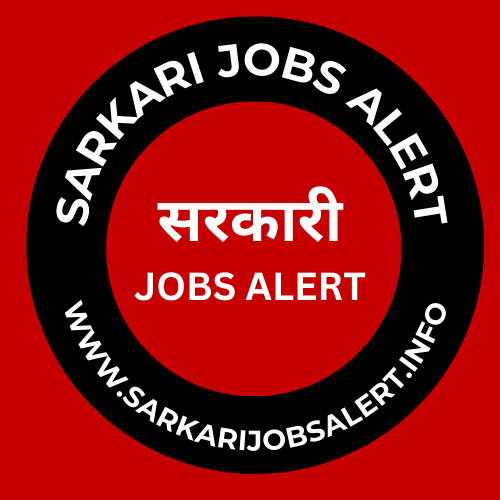- Basic Sciences
Anatomy and function of joints, Bone structure and function, Growth
factors and facture healing, Cartilage structure and function, Structure
and function of muscles and tendons, Tendon structure and function,
Metallurgy in Orthopaedics, Stem Cells in Orthopaedic Surgery, Gene
Therapy in Orthopaedics. - Diagnostic Imaging in Orthopaedics
Digital Subtraction Angiography (DSA) 6, MRI and CT in Orthopaedics,
Musculoskeletal USG, PET Scan, Radio-isotope bone scan - Diseases and Disorders
Metabolic Bone Diseases: Rickets and Osteomalacia,
Osteoporosis, Scurvy, Mucopolysaccharoidoses, Fluorosis,
Osteopetrosis
Endocrine Disorders: Hyperparathyroidism, Gigantism,
Acromegaly
Bone and Joint Infections: Pyogenic Haematogenous
Osteomyelitis, Acute and Chronic, Septic arthritis, Fungal infections,
Miscellaneous infections, Gonococcal arthritis, Bone and joint
brucellosis, AIDS and the Orthopaedic Surgeon (universal
precautions), Musculoskeletal Manifestations of AIDS, Pott’s spine,
Tubercular synovitis and arthritis of all major joints
Poliomyelitis: General considerations, Polio Lower limb and spine,
Management of Post Polio Residual Palsy (PPRP)
Orthopaedic Neurology : Cerebral Palsy, Myopathies
Peripheral Nerve Injuries :Traumatic, Entrapment Neuropathies
Diseases of Joints: Osteoarthrosis, Calcium Pyrophosphate
Dihydrate (CPPD), Gout, Collagen diseases.
Systemic Complications in Orthopaedics: Shock, Crush
syndrome, Disseminated Intravascular Coagulation (DIC), Acute
Respiratory Distress Syndrome (ARDS)
Bone Tumors: Benign bone tumors, Malignant bone tumors,
Tumor like conditions, Metastatic bone Tumors
Miscellaneous Diseases: Diseases of muscles, Fibrous Dysplasia,
Unclassified diseases of bone, Paget’s disease, Peripheral
vascular disease, Orthopaedic manifestations of bleeding disorders - Regional Orthopaedic Conditions of Adults and Children
The spine, The shoulder, The elbow, The hand, The wrist, The hip,
The knee, The foot and ankle, The pelvis - Biomaterials
Orthopaedic metallurgy, Bio-degradable implants in Orthopaedics,
Bone substitutes, Bone Banking - Fracture and Fracture-Dislocations
General considerations : Definitions, types, grades, patterns and
complications, Pathology of fractures and fracture healing, Clinical and
Radiological features of fractures and dislocations, General principles
of fracture treatment, Recent advances in internal fixation of fractures,
Locking plate osteosyntheses, Less Invasive Stabilisation System
(LISS), Ilizarov technique, Bone grafting and bone graft substitutes,
Open fractures and soft tissue coverage in the lower extremity,
Compartment syndrome, Fractures of the upper extremity and
shoulder girdle, Fractures of the lower extremity, Fractures of the hip
and pelvis, Malunited fractures, Delayed union and nonunion of
fractures, Fractures/dislocations and fracture – dislocations of spine.
Dislocations and Subluxations
Acute dislocations, Old unreduced dislocations, Recurrent dislocations - Traumatic Disorders of Joints (Sports Injuries)
Ankle injuries, Knee injuries, Shoulder and elbow injuries, Wrist and
hand injuries - Arthrodesis
Arthrodesis of lower extremity and hip, Arthrodesis of upper extremity,
Arthrodesis of spine - Arthroplasty
Biomechanics of joints and replacement of the following joints:
Knee, Ankle, Shoulder, Elbow - Minimally Invasive Surgery (MIS)
Arthroscopy: General principles of Arthroscopy, Arthroscopy of knee
and ankle, Arthroscopy of shoulder and elbow - Amputations and Disarticulations
Amputations and disarticulations in the lower limb, Amputations and
disarticulations in the upper limb - Rehabilitation – Prosthetics and Orthotics.
- Pediatric orthopaedics
Fractures and dislocations in children, Perthes’ disease, Slipped
capital femoral epiphysis, Congenital Dislocation of Hip (CDH),
neuromuscular disorders. - Spine
Spinal trauma: diagnosis and management including various types
of fixations, Rehabilitation of paraplegics or quadriplegics,
Management of a paralyzed bladder, Prevention of bed sores and
management of established bed sores, Exercise programme and
Activities of Daily Living (ADL), Psychosexual counseling
Degenerative disorders of the spine: Prolapsed Inter Vertebral
Disc(PIVD),LumbarCanalStenosis(LCS),Spondylolysis/Spondylolis
thesis, Lumbar Spondylosis, Ankylosing Spondylitis, Spinal fusion:
various types and their indications. - Triage, Disaster Management, BTLS and ATLS.
- Recent advances in orthopaedics
Autologous chondrocyte implantation, Mosaicplasty, Video assisted
Thoracoscopy (VATS), Endoscopic spine surgery, Metal on metal
arthroplasty of hip, Surface replacements of joints, Microsurgical
techniques in Orthopaedics, Designing a modern orthopaedic
operation theatre, Sterilization, Theatre Discipline, Laminar air flow,
Modular OTs. - Indian Medical Council (Professional Conduct, Etiquette and
Ethics) Regulation, 2002. - Current Trends in the Field of Orthopaedics.
